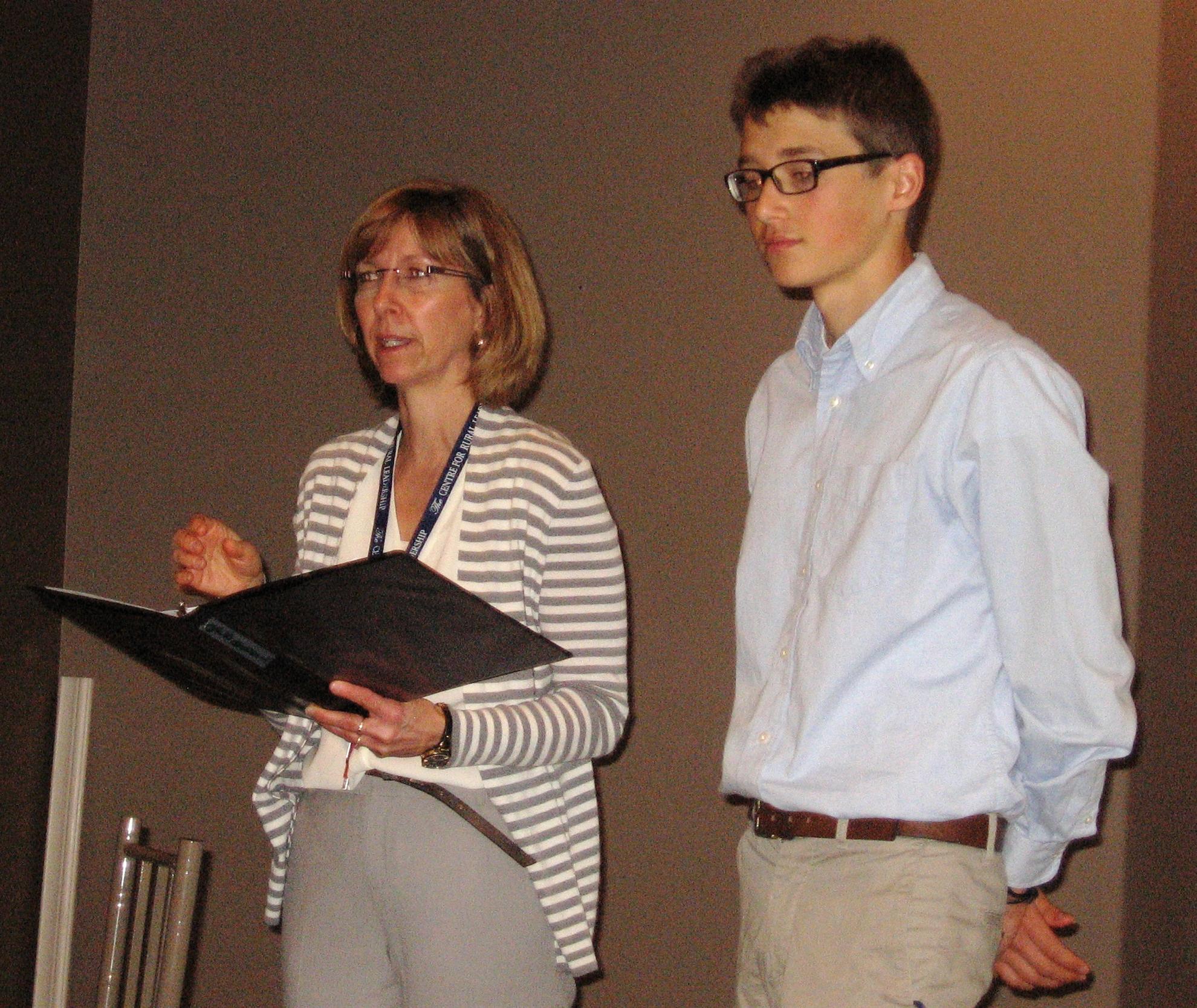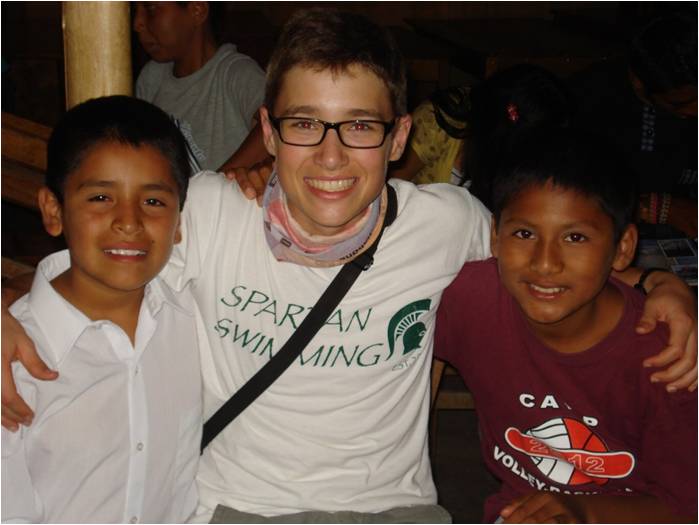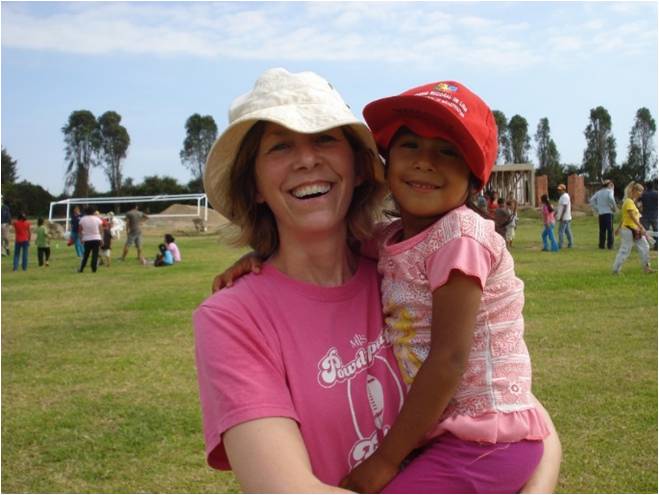Helping Hands at NPH Orphanage in Peru
 On Thursday we had an inspiring presentation from a mother and son, Marnie and Sam Kloppenburg, who travelled to an orphanage in Peru on a sweat equity mission earlier this year. This is their story.....
On Thursday we had an inspiring presentation from a mother and son, Marnie and Sam Kloppenburg, who travelled to an orphanage in Peru on a sweat equity mission earlier this year. This is their story.....Good morning. Today my mum, Marnie and I will be speaking about our experience in Peru where we spent eight days working on the construction of an orphanage. The organization we went with is Friends of the Orphans Canada a.k.a FOTOCAN, which is a partner of Nuestros Pequenos Hermanos (NPH which loosely translated, means our little brothers and sisters), the organization that operates the orphanage in Peru. We travelled to Peru with a group of 27 other Canadians, some of whom have been to this NPH orphanage several times. The participants ranged in age from 14 all the way to 70 years old, Interestingly, a large portion of the group were from two other united churches, Lakeshore in Goderich and Georgian Shores in Owen Sound. Our friend, Andy Ross who is a member of Lakeshore and on the FOTOCAN board and has been involved with the organization for several years says he thinks of the work as humanitarian rather than religious.
NPH was founded in 1954 by a catholic priest in Mexico. Since then, the organization has grown to operate 9 orphanages in Latin American countries, housing 3300 children. The NPH Peru orphanage is called Casa Santa Rosa and was founded in 2004, and is currently home to 100 children. The region of Canete is quite poor, due to the lack of tourism that other parts of Peru benefit from.

Each morning, the group rose at 7am and worked until about 4pm. During the day we took breaks to eat, seek some shade, rest and socialize with the kids and each other. To accommodate all the different ages and abilities of the volunteers, there were a wide range of jobs to undertake, such as painting, digging trenches, landscaping, moving bricks and mixing concrete. The hardest job was helping to pour the concrete roof on the new dining hall, pictured on the right. The Peruvian construction workers we helped were very hard-working and thorough. Moving bricks was a common job. Unlike in Canada, the construction tools are shovels, picks, and a small cement mixer. So in the absence of a fork-lift to move a palette of bricks our group of volunteers formed a line and tossed bricks along the line to build piles of bricks so they could be easily accessed by the Peruvian construction crews.
During our stay we encountered several challenges while adapting to Peruvian life. First there were the biting sand flies, which constantly attacked my legs unless I coated my legs in bug spray. In addition, some of us contracted some minor gastrointestinal ailments which we coped with in our own way!
Another challenge was getting ample sleep when the rooster announced that it was morning anytime between 2 and 4 am everyday. We also met a new sounding bird in the early morning called a Peruvian thicknee who made some nice early morning harmonies with the rooster. We’ve heard that on other trips rooster stew was on the menu by the end of the week.

We had the opportunity to make some special bonds with the children. The children brought tears and smiles for many of us. Reflecting back as a Mum, I can hardly imagine a parent not being with their children through the precious moments of childhood. Although we did not know the particular stories of each child, we did know that children come to the orphanage for many reasons, some because of a death of a parent, poverty, needs beyond the family’s ability to provide or not having attended school for a number of years.
In closing, our experience in Peru was fantastic and one we will remember forever. We are so fortunate to have met the people in our group and the kids at the orphanage. The orphanage is so important because it provides a stable, secure and loving upbringing for these children.
For anyone interested in watching Sam and Marnie's powerpoint presentation it can be found in the homepage download section under "Helping Hands at Peruvian Orphanage".
